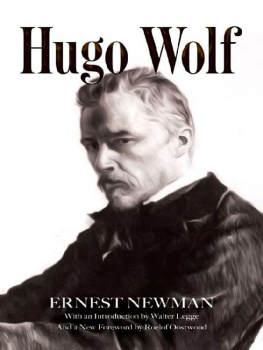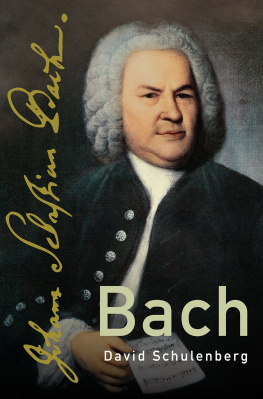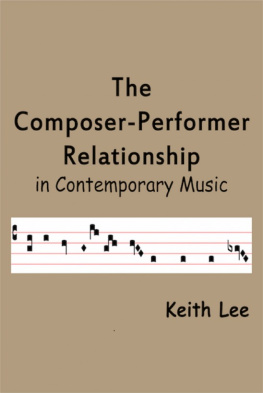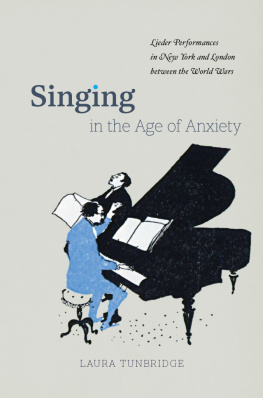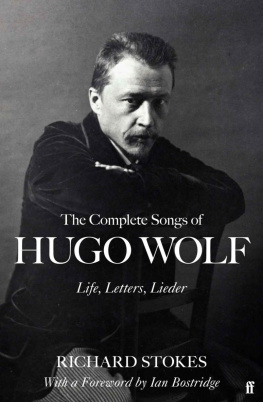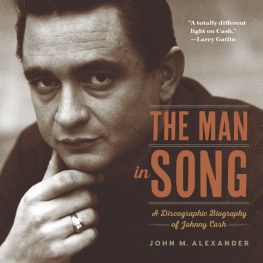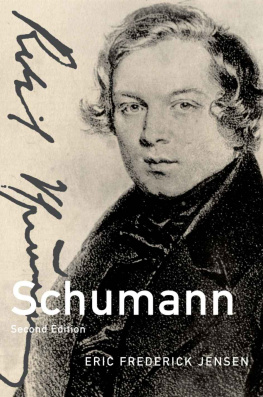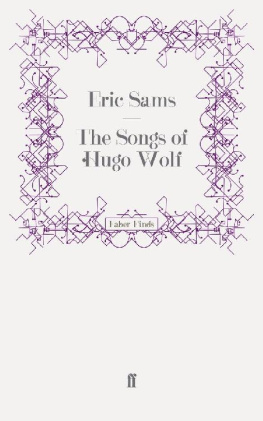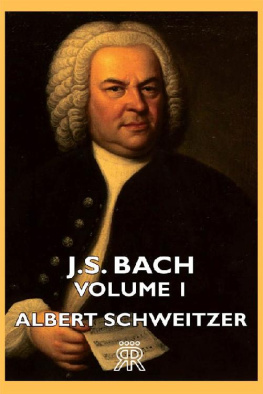
HUGO WOLF IN HIS THIRTY FIFTH YEAR
HUGO WOLF
by
Ernest Newman
With an Introduction by
WALTER LEGGE
and
a new Foreword by
ROELOF OOSTWOUD
Dover Publications, Inc.
Mineola, New York
To KATO
Copyright
Copyright 1966 by Dover Publications, Inc.
Foreword Copyright 2012 by Roelof Oostwoud.
All rights reserved.
Bibliographical Note
This Dover edition first published in 1966 and reissued in 2012, is an unabridged and corrected republication of the work first published by Methuen & co., London, in 1907 to which has been added a new Introduction and three illustrations. For the 2012 reissue, a new foreword by Roelof Oostwoud has been added.
Library of Congress Catalog Card Number: 66-23973
International Standard Book Number
ISBN-13: 978-0-486-21579-2
ISBN-10: 0-486-21579-2
Manufactured in the United States by Courier Corporation
21579241
www.doverpublications.com
FOREWORD TO
THE 2012 DOVER EDITION
This notable study on the life and works of Hugo Wolf was written and first published in 1907, just 4 years after Wolfs death. Newman acknowledged that more data and new information would, in time, inevitably come to light. Nevertheless, he was convinced that more than enough information was at hand for a valid portrait of this erratic genius and supreme master of the Lied, or German song. Newman meticulously went through everything in print up to that time about or concerning Wolf, including newspaper and magazine articles and a four volume monograph on Wolf by Ernst Decsey. In addition, he was also given access to private correspondence (albeit with negative and unflattering remarks about colleagues expurgated) between Wolf and a number of important figures in his life. These include Hugo Faisst (18621914) amateur baritone and founder in Stuttgart in 1898 of the Hugo-Wolf-Verein, which later became the Internationale HugoWolf-Akademie, as well as composer, conductor and educator Emil Kauffmann (18361909) and Oskar Grohe (18591920), a district judge in Mannheim and influential patron of the arts.
Importantly, this present reissue of Newmans monograph on Hugo Wolf contains valuable material on the composer that has come to light since the book was written, material that was either unavailable or not known to Newman. It is included in the form of a comprehensive and superlatively researched introduction by the legendary E.M.I. record producer Walter Legge (19061979), one of the most influential figures in the classical music industry from the mid-1920s to the mid-1960s. Legge was married to the celebrated German soprano Elisabeth Schwarzkopf and not only supervised her extensive recording legacy, he also astutely guided her career. He was, in addition, instrumental in furthering the careers of such important conductors and singers as Herbert von Karajan, Maria Callas, Dietrich Fischer-Dieskau, Josef Krips, Hans Hotter, Otto Klemperer and many others. Walter Legge first supplied his extensive Introduction for an earlier Dover Publications reissue of Newmans volume in 1966.
In addition to authoring a number of important music books, Ernest Newman was one of the foremost music critics of his time, along with Neville Cardus and George Bernard Shaw. He held the position of music critic of The Sunday Times from 1920 until his death in 1959, nearly forty years later. He is described by Groves Dictionary of Music and Musicians as the most celebrated British music critic in the first half of the 20th century. Newman was born William Roberts in Liverpool in 1886, but adopted his nom de plume to specifically underline the new and fresh manner of his approach to his subjects. A distinctive characteristic of his critiques was intellectual objectivity and this so impressed Walter Legge that he went in search of books by Newman, thereby coming across the Hugo Wolf biography. This led to Legge becoming a passionate champion of the works of Hugo Wolf in Britain. He founded the Hugo Wolf Society, which, under his aegis in the 1930s and 40s, was responsible for a major production initiative that resulted in the recording of over two hundred of Wolfs Lieder. Legge engaged important interpreters of Lieder such as Elena Gerhardt, Alexander Kipnis, Heinrich Schlusnus, Gerald Moore and Michael Raucheisen, to name just a few. It was, in fact, the wonderfully poignant recording by the great Irish tenor John McCormack of Schlafendes Jesus-kind that was my entry, as a young student, to the treasure trove of Lieder by Hugo Wolf. Walter Legge was a longtime head of the Hugo Wolf Society, lifelong promoter of the music of Wolf, and continued to collect comprehensive material on him throughout his life.
Arguably, the most important section (certainly for the students of today) of this Newman volume is his survey and individualistic but cogent and insightful analysis of Wolfs Lieder. Newman is equally at home with the art form of poetry and that of music and has a fundamental and unique understanding of their interrelationships in songs or Lieder. This is borne out by the impressions of and perspicacious insights into Wolfs Lieder as laid out in this volume. They reflect the initial impact the originality and brilliance of the songs had on Newman. This music evidently made an overwhelming impression on him and his enthusiasm for his subject is infective. Its spark will not only ignite the curiosity of the reader, but will give him or her an inspired basis on which to build his or her understanding and interpretation of the Lieder. Newman later expanded upon the analyses presented in these 60-some pages in the comprehensive notes he wrote for the Lieder recordings that were put out by the Hugo Wolf Society under Walter Legge. The serious student will therefore also want to acquaint him-or herself with this treasure trove of historical recordings.
Also of particular interest to the serious student will be the erudite chapter on Wolfs two operas, Der Corregidor and the unfinished Manuel Venegas. These works represent Wolfs only venture into the area of music drama and the thirty-nine page section on these works still provides one of the most valid explorations and studies of these operas.
This book on Hugo Wolf and his works was, for over 40 years, the only work in the English language on this important composer of the late Romantic period and is today still an important and valid starting point to the understanding of the man and composer Hugo Wolf and his music.
Roelof Oostwoud
Associate Professor of Voice and Music
University of British Columbia
June, 2012
INTRODUCTION TO
THE 1966 DOVER EDITION
by Walter Legge
THE BOOK
This is the first American edition of the book with which Ernest Newman laid the foundations of Hugo Wolfs great fame. For nearly half a century it was the only Wolf book in the English language and I doubt whether any other monograph has had so much influence on the spread of a composers fame.
Ernest Newmans Hugo Wolf was first published in 1907 and went out of print soon after the First World War. The rights reverted to Newman in 1926. At about this time it became something of a collectors piece, and by 1929 dealers were asking as much as nine guineas for a copy. Between 1932 and 1950 Newman was asked at least four times to sanction new editions. He turned down all these offers because he planned to write a new study of Wolf, but, like his long-planned books on Beethovens posthumous quartets and on Berlioz, this was never written.
Hugo Wolf had been dead only four years when Newmans book came out, and the biographical part of it is inevitably incomplete, but hardly ever inaccurate. Following Decsey, Newman remarks that Wolf made no sketches. The first draft was the last. Wolf did make sketches but apparently destroyed them when he had written his first fair copy. This does not alter the fact that Wolf sometimes composed, i.e. sketched and wrote out, in exquisitely clear manuscript, three songs in one day.
Next page
